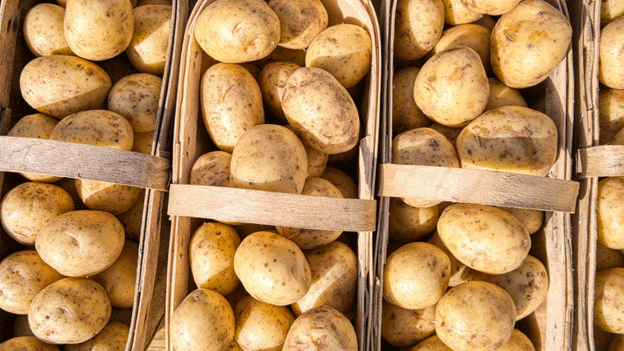In 2024, the Novgorod region in Russia achieved impressive results in its efforts to increase local potato seed production. Agricultural producers in the area produced a total of 28,600 tons of high-quality potato seeds, marking a significant achievement in the region’s drive for greater agricultural self-sufficiency. This increase in production has also reduced reliance on imported potato seeds, with only 1% of seeds now being sourced from abroad.
A Breakdown of Seed Production in Novgorod
The potato seed production in Novgorod this year included a wide variety of seed categories:
- Elite seeds: 19,900 tons
- Super-elite seeds: 6,000 tons
- Super-super-elite seeds: 2,400 tons
These figures represent the highest levels of seed quality, with “elite” seeds referring to those of the highest purity and genetic potential, making them ideal for planting to achieve high yields in subsequent harvests. By focusing on these high-grade seeds, Novgorod is positioning itself as a key player in the national seed potato market.
The Shift Toward Self-Sufficiency in Seed Production
One of the most significant changes in the region’s potato seed industry has been the substantial reduction in the import of foreign seed potatoes. In 2024, local agricultural producers sourced only 1% of their seed potatoes from abroad, down from previous years when foreign seeds made up a more substantial portion of the market. This shift towards domestic seed production is part of a larger trend in Russia to increase self-sufficiency in food production, reducing dependence on imports amid global supply chain disruptions.
The reduction in seed imports is also a result of strategic investments by the Russian government and agricultural organizations in seed production technology. Over the past few years, the country has worked to improve seed quality, strengthen agricultural infrastructure, and boost research into seed potato varieties suited to local conditions.
Advantages of Domestic Seed Production
The increase in local seed production provides numerous benefits for both farmers and the region as a whole:
- Reduced Dependency on Imports: Local seed production reduces the risks associated with global supply chain disruptions, ensuring a more stable supply of seed potatoes for farmers in the region.
- Improved Seed Quality: By focusing on elite, super-elite, and super-super-elite seeds, Novgorod farmers can ensure that they are planting the highest-quality seeds available, which translates into better yields and healthier crops.
- Economic Impact: The shift toward self-sufficiency in seed production also has positive economic implications. By producing more seeds locally, Novgorod can lower costs, create local jobs in seed production, and boost the regional agricultural economy.
- Environmental Benefits: Local seed production means fewer shipments of seed potatoes from other regions or countries, reducing the carbon footprint of transportation and contributing to more sustainable agricultural practices.
Future Prospects for Potato Seed Production
With the success of the 2024 season, the Novgorod region is well-positioned to continue growing its role in Russia’s agricultural sector. Moving forward, the region plans to further enhance its seed potato production capabilities by investing in cutting-edge farming technologies, improving research and development in seed genetics, and expanding the capacity of local agricultural facilities.
There is also potential for the region to increase its seed exports to other parts of Russia or even to neighboring countries, further strengthening its position in the national and regional agricultural markets.
The Novgorod region’s success in boosting its potato seed production is a significant step toward achieving agricultural self-sufficiency in Russia. With a reduction in seed imports and an increase in the production of high-quality, elite seed potatoes, Novgorod is setting an example for other regions to follow. This shift not only benefits local farmers by providing them with high-quality seeds at lower costs but also strengthens Russia’s broader agricultural economy and contributes to a more sustainable and self-reliant food system.







